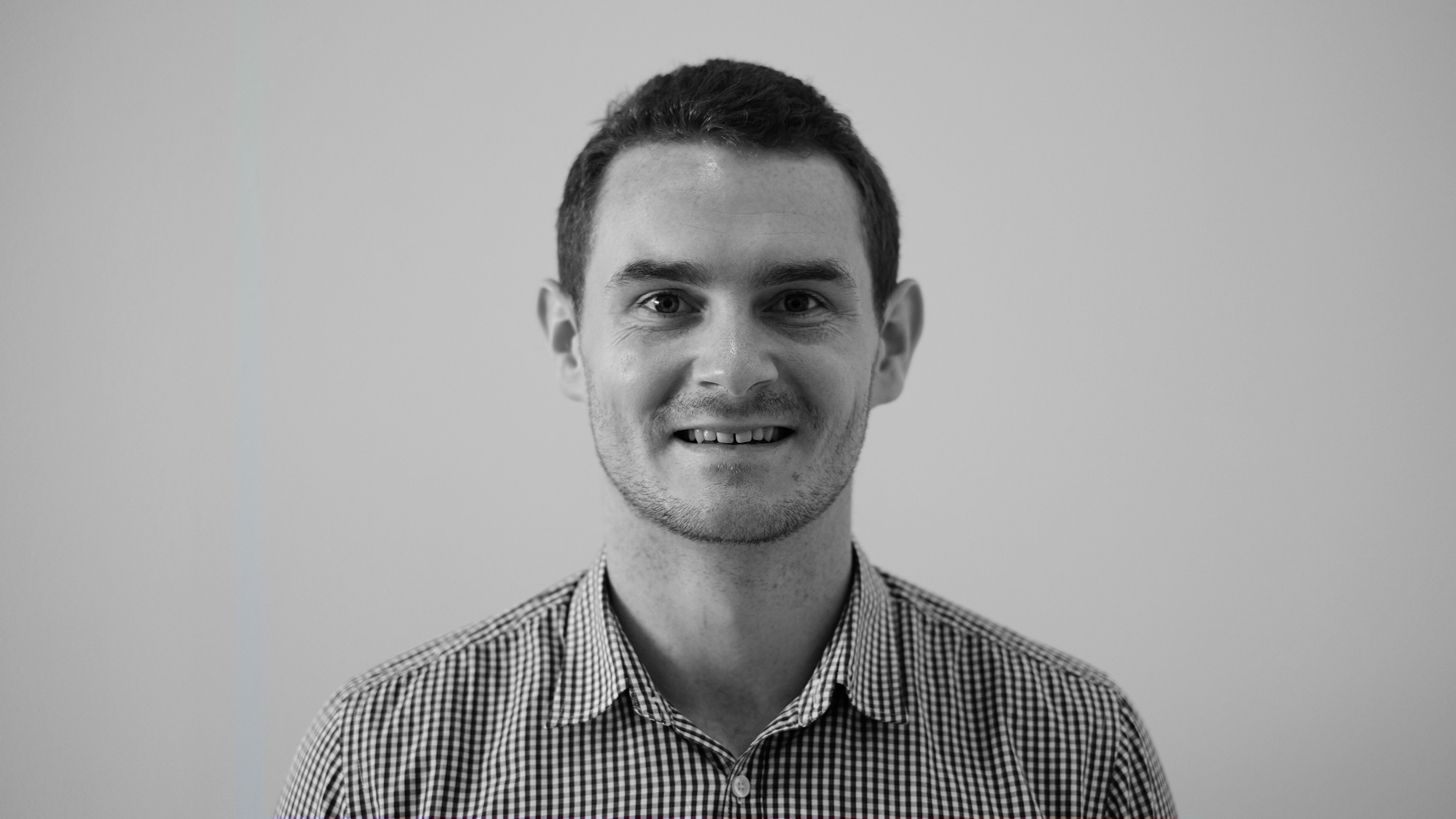Why Organisations Need to Change
/For 1st Conference this year, we're looking to develop content that isn't simply promotional material for the event. What you'll read and watch here is not a copy of what you'll be hearing from Joanne when she's here in Melbourne on the 26th & 27th February 2018, it's original content for you to learn from.
At Tabar, we believe we have an opportunity to help to educate the community, we want to support the modern workforce to adapt as technology continues to disrupt industries, forcing entire organisations, not just technology teams to adopt agile and new ways of working. This interview is designed to help shape your thinking to both get more value out of the day, and to learn from experts in the field for those who cannot attend.
I’m very lucky in my job, as a part of what I do I get to interview incredible speakers and thinkers from all over to help share their ideas with you so you can learn from their experiences.
I was delighted that our first official Keynote Speaker, and my first interview was with Joanne Molesky, Thoughtworks' Governance, Risk and Compliance gun. At home, I have my own copy of her critically acclaimed, co-authored book “Lean Enterprise” sitting in my bookshelf, dog eared and highlighted right the way through. I was excited to speak with her, and I knew it would be a valuable chat, she didn't disappoint.
Joanne, who is primarily based in Canada, is a key member of Thoughtworks' TechOps Management team, with responsibilities for IT Governance Risk and Compliance. Her passion is for finding ways to reduce risks to the organisation related to software delivery and use without compromising creativity, experimentation and learning. She currently leads the global InfoSec team for Thoughtworks. We were lucky enough to be connected with her by our content curator, Kelsey Van Haaster, who has worked with Joanne for a number of years.
Joanne and I spent a fair while chatting on Zoom (if you don't know about Zoom, you should), she made it very easy for me to be captured by her ideas and the way she sees the world and the workforce. The below video clip is Part One of what I’m turning into a pre conference series:
Part One is about why we are facing problems in the workforce today.
Part Two is about what the opportunities we have in the Australian market are, and where you can start learning to inform how you think on the changes.
Part Three will be when you see Joanne at 1st Conference, where Joanne will start to tell you about how you can start to approach these problems in your workplace today.
Basically, I would highly recommend watching this video as supplementary content to watching Joanne's keynote address on the day. The conversation gives some excellent context to the challenges we face in the workforce right now and will really help prime your thinking for 1st Conference in Melbourne in February, I’ve also summarised some of the key themes below.
If you liked or have feedback on this story and interview, please let me know!
Ringo.Thomas@tabar.com.au
Why Organisations Need to Change
For those of you, who like many didn't have the time, or attention span to watch the full 16 minute video - I've written a supporting article which you can read below the video. Although this is designed to support the video, I've also made sure that I've tried to analyse the discussion to share insight, as opposed to simply providing a transcript.
The purpose of the article is to explain why the workforce is changing, and why we're having to challenge our natural assumptions of the ways organisations have traditionally been structured to stay relevant in the world today.
I like to have a positive, opportunity focused approach on issues. Throughout my conversation with Joanne, despite the vindicating tone in which we can look at the state of affairs in the modern workforce, there is opportunity to thrive for those of us who are willing to look at what we do differently, and embrace the ambiguity that comes with the pace of change today. I'll unpack this below.
Joanne provided some excellent linkages to explain the primary issues we’re facing in the workforce. The theme of 1st Conference this year is all about what we’ve termed “Organisational Agility”, we believe that to influence change and to empower your people to adopt new ways of working, you need to re-think the way the entire organisation is structured. The purpose of the conversation with Joanne was to expand on this idea.
Joanne speaks about some of the issues large organisations face in Lean Enterprise, the book I would highly recommend which she co-authored with Barry O’Reilly and Jez Humble. It was interesting to hear that although they initially set out to write a technology book, they quickly realised that there was a much broader issue than the effectiveness of technology in the workplace at play, and it could only be addressed by looking at the how whole organisation works.
The structure and controls that traditional management systems have in place around their workforce seriously decreases the effectiveness of technology. So technology is not where you start. Your ability to harness the power of technology starts with empowering your people and unlocking their human potential, not to put constrictive boundaries around their ability to work. In Joanne's opinion, the greatest opportunity for organisations who change the way they work is exactly that - to unlock the human potential in their organisation.
Interestingly, Joanne comes from a healthcare background. Her degree is in health sciences and she was a trained dietitian before taking the step into technology. She loves the fact that as she has gotten more and more involved in dealing with technology, the workforce and corporate governance structures, the fundamental learnings about how to deal with organisms apply directly when dealing with organisations. When you look into the etymology's of these words, you'll see that in all cases, they're all quite simply interrelated complex living systems.
Joanne shares a couple of these fundamental concepts:
- You learn to never look at systems in isolation, the key is to identify the root cause of issues and try to influence change there.
- You learn that you can’t put some form of a solution or fix in place without considering the flow on effects to the broader system.
This is often the issue in workplaces of today, a lot of time and energy is spent driving localised efficiencies to satisfy dated cost modelling and management reporting. The metrics of success for the majority of the organisation has no relation to employee engagement or customer satisfaction - these are both the most inherently human related outputs of an organisation.
Humans are doing the work, but they're being treated like machines, no wonder people are disengaged! The only way a system of management can unlock the human potential is by empowering us to act like humans within a system that evolves as we do, not by constraining us with trickle down management metrics.
Since the early 2000's, the explosions of smart phones, connectivity and the internet has meant we’ve seen technology exponentially change the way society lives, learns and interacts with everything. However, these larger organisations haven’t adapted yet, the majority of the workforce are still at mercy to these constrictive command and control systems of management and as a result they cannot keep up with the pace of change.
This is the issue, and that is why employees are disengaged and companies that once felt too big to fail are starting to fall to disruptors in the market, the organisational systems can't respond to digital disruption and the people in the organisations aren't empowered, encouraged or inspired to.
I asked Joanne what good looks like, and what the greener pastures are if you manage to successfully change the way you work in your organisation, we need to know what to aspire to, right? She says the key is when you’re able to transform management from commanders into facilitators. This is where you’re able to humanise your workforce to ideate, collaborate and innovate to develop products that serve your customers in ways we haven't even thought of yet. This is when your workforce is engaged and happy, and really making a positive difference to the world.
The caveat? This is so hard. Particularly in these huge organisations that have years of legacy embedded behaviours and processes, where the middle layers of management aren’t incentivised to let go of control, if anything they're terrified to. Targets, bonuses and measurements of success are all reinforcing to the idea of strict plans, and force people to hold on tight out of fear of losing their jobs. Despite a common sentiment - they are not the problem. Human beings inherently mean well, the systems we hold them accountable to is the issue, and it's de-humanising the workforce.
We're all worried about automation and robots taking our jobs, but this could be the only thing that saves humans from being robotic in our work, and simply cogs in the machine.
But here in lies the opportunity.
Luckily for us down in the South Pacific, there’s a lot of opportunity to be a catalyst for change in the Australian market. We have our issues for sure, like any workforce. However, in Joanne's opinion we have a few things going for us:
- a clearer customer base, we know who they are and what they like
- our organisations simply aren't as large, even our biggest employers have nowhere near the scale of some overseas companies
- a smaller market, this allows us to understand the competitive landscape better, so we're at less risk from disruptors
- the ability to experiment and learn to get things right here in a safe environment, before scaling overseas
- an open culture that encourages people to speak our minds and change the way we behave
We unpack this further in Part Two, we speak more about the Australian markets, and also about some of the reading, learning and research you can do to position yourself as a thought leader in the space, and to prepare to get the most out of 1st Conference.
So that's the end of Part One, I'm excited to hear what you think and to release Part Two. I can tell you one thing, after speaking with Joanne I cannot wait to hear about what she has to say in Melbourne on February the 26th & 27th at 1st Conference 2018.



